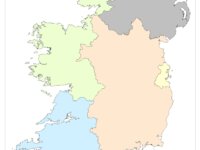Case Study
Ensuring Impartiality through Identity-Neutrality Provisions: the Case of Freedom of Information in…
The Internet has facilitated online services for citizens, but it has also facilitated Internet searches of service-seeking citizens by public officials, triggering conscious or unconscious bias. Via freedom of information (FOI) requests, academics provided evidence of this phenomenon at work. Brazil's Comptroller General (CGU) responded by implementing a check-box in its online FOI requesting system so that requesters could choose to remain anonymous. This innovation is a first for FOI regimes.



